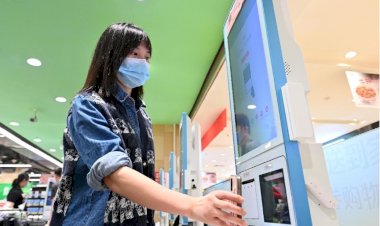The Internet of Things: When Your Toaster Talks to Your Fridge
Imagine waking up in the morning and your coffee machine already knows you hit snooze three times, so it’s brewing an extra-strong cup to save your day

Estimated reading time: 4 minutes
Meanwhile, your fridge is texting the grocery store, asking for more milk because you poured the last bit into your cereal yesterday. This isn’t the opening scene of a sci-fi movie—it’s the Internet of Things (IoT) at work, quietly revolutionizing our world one smart device at a time.
But what is IoT, really? It’s the grand idea that everything—yes, everything—can be connected to the internet and each other. From your fitness tracker tattling to your phone about how few steps you’ve taken, to traffic lights that adjust themselves in real-time, IoT is turning our world into a massive, interconnected web of smart stuff.
Welcome to the Age of Smarter Everything
IoT isn’t just about convenience. Sure, it’s nice that your thermostat learns your preferred temperature (a cozy 72°F) or that your smartwatch tells you to stand up because you've been Netflixing for hours. But IoT goes much deeper.
Take healthcare, for example. Imagine a tiny device monitoring your heart rate, blood pressure, and other vitals, all while sending that data to your doctor. You might skip the waiting room for good. Or think about agriculture: sensors in the soil can detect moisture levels and whisper to the irrigation system, “Hey, this patch needs a drink,” saving water and boosting crop yields.
And then there’s transportation. Cars that talk to each other to avoid collisions? Traffic systems that adapt on the fly? It's like the Jetsons, but without flying cars (yet).
The Witty Wonders of IoT
IoT is making life easier, smarter, and, let’s admit it, just a little bit weirder. Your vacuum cleaner now maps your house like it’s plotting world domination. Your doorbell has become a surveillance expert. And your oven might someday know you well enough to suggest recipes based on what’s in the pantry—and your mood.
But with great connectivity comes great responsibility. All these devices sharing data? It’s a goldmine for hackers. Suddenly, your smart lightbulb could be the weak link in your digital fortress. That’s why cybersecurity is as essential as your Wi-Fi password (which, by the way, should not be “123456”).
The IoT Future: Beyond Smart
Experts predict we’ll have over 50 billion connected devices by 2030. That’s more “things” than there are humans on the planet. Imagine a world where your umbrella reminds you to take it because rain is 90% likely, your car schedules its own tune-up, and your toaster develops a personality (hopefully one that doesn’t involve sarcasm).
But it’s not all quirky fun. IoT could help cities reduce energy waste, monitor pollution, and improve quality of life. It could revolutionize industries, from healthcare to logistics, and address challenges like climate change.
Wrapping It Up
The Internet of Things is more than a collection of gadgets; it’s a movement. A quiet, beeping, buzzing, data-sharing revolution that’s changing how we live, work, and interact with the world.
And who knows? In the near future, you might not just talk to your devices—they might just start talking back. Hopefully, they’ll have good jokes.
Please note, this article has been written with the help of ChatGPT.
What's Your Reaction?
























